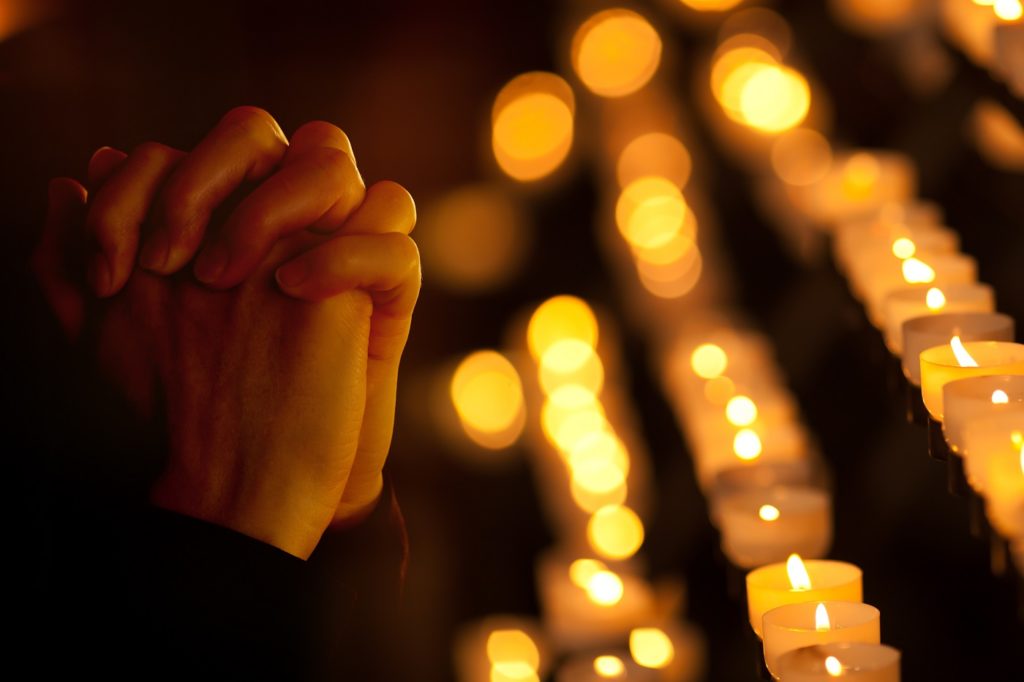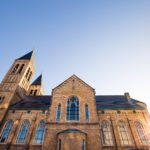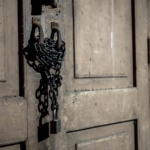What are the obligations of the Church and her personnel under the current conditions of COVID-19?
First, the Church does have an obligation to respect the health of the human body. We must not use an appeal to the spiritual life or the primacy of the sacramental economy as an excuse to ignore widespread risks to the bodily health of human persons. Furthermore, Catholic bishops have the right, within prudential reason, to alter the ways and circumstances that the sacraments are celebrated in order to protect the health of vulnerable persons. This has been done before in epidemics, and there are clear precedents in the tradition, even for the temporary suspension of public masses.
That being said, the Church is uniquely responsible for the spiritual good of the human community, and she must remind Catholics and non-Catholics alike of the primacy of the spiritual. The Church insists rightly that spiritual health is more important than bodily health, without opposing the two. She also insists on the importance of the life of grace and charity as the highest good of the soul—the good that orders the human person toward eternal life with God.
In this context, the sacramental economy is a most essential means, instituted by Christ himself, by which human beings may enter into and be sustained in the life of grace. Baptism communicates grace to the recipient and places the person in a state of friendship with God. Sacramental confession communicates the forgiveness of sin and the restoration or strengthening of the life of faith, hope, and charity. The Eucharist nourishes this life by augmenting the soul’s participation in charity. Anointing of the sick provides those suffering due to illness with greater spiritual strength so as to endure the trials of sickness, even in the face of death. The sacraments are essential to life during a widespread pandemic. They are essential means of salvation and sanctification that the Church can and must provide if she is to rightly respond to the needs of human persons, in light of their supernatural destiny.
Start your day with Public Discourse
Sign up and get our daily essays sent straight to your inbox.Two Lessons from Thomas
In Summa Theologiae II-II, q. 26, Thomas Aquinas considers the so-called order of charity—the question of who should be loved more because of their greater importance in the order of grace—and the ways that natural loves are inwardly sanctified by the life of grace. There, he asks whether the Christian should love another by charity more than himself. He answers by making a significant distinction.
According to Aquinas, each person should love God first above all things, and his own soul second. This is especially true insofar as each person should recognize his own inherent goodness as a created person while living concretely for eventual union with God, and do nothing to forfeit this orientation of divine love in himself. Each person should in turn wish this same good for others, to the extent that it is in his power. In this sense, the love of self follows from the love of God, and the love of one’s own soul is to be preferred to the love of one’s neighbor. In other words, we may not sin out of misbegotten solidarity with our neighbor.
At the same time, Aquinas claims that we should love our neighbor’s soul more than our own body. Thus, we can rightfully lay down our lives, our bodily health, or our possessions, if it aids the eternal salvation of our neighbor. Here one may think of martyrs who witness publicly to Christ by shedding their blood, or of chaplains during times of epidemic or war who give their lives in the service of the sick or the dying. Aquinas thinks these are warranted acts of charity. They may well be heroic, insofar as charity moves a person to act beyond the natural duties of justice or friendship and according to a higher standard of divine love.
I will return shortly to the question of heroic Christian action and what is required of diverse persons in diverse circumstances and states of life. For now, we can simply draw out of Aquinas’s analysis two universal principles that would seem to bear on the question of how the Church must confront the challenge of ministering in a time when COVID-19 is prevalent.
The first is that the spiritual health of the soul must remain a priority, especially in the exercise of the sacraments. This follows from the idea that the soul must be loved more than the body and that one’s own relation to God must continue even when there are those who would alter their observance of the sacramental life for reasons of natural fear. This is not to say that the public celebration of the sacraments can in no way be altered, but it does mean that they need to be widely available.
Baptism and confession are fundamental sacraments necessary to convey the life of grace or to restore it. It is neither just nor permissible for a diocese to issue a complete suspension of these sacraments. Likewise, those who are dying or gravely ill, including those who have COVID-19, should be visited and have the right to receive sacraments of anointing, sacramental confession, and communion. The latter visitations require careful procedures, but they certainly can be done, and local churches increasingly have experience of how to do them. In countries in which medical supplies are lacking, it should be a priority of the Church to obtain materials necessary for ministers so that they may visit the sick effectively and safely. Likewise, couples have a right to be married even in the midst of an epidemic. Even if they must have a reduced number of attendants, they cannot be denied the right to wed sacramentally. More generally, the faithful should have some access to the presence of the Blessed Sacrament, and whenever possible, to the holy sacrifice of the Mass, even if they may not take communion during increased periods of risk.
Second, at least some people need to be assigned to provide for the sacramental care of others—at the risk of their own bodily life, for the purposes of the care of souls, and as a public witness to charity. The Christian witness has to take account of circumstances. Some circumstances require heroic virtue, if the Church wishes to maintain a firm witness to divine love.
It may be reasonable to send younger clergy and religious into domains where epidemic effects are greater—so as to safeguard elderly religious and clergy—and one can adopt best practices of sanitation to prevent illness. However, it is imperative that these measures not interrupt per se the possibility of the celebration of the sacraments.
The Suspension of Public Masses
It is acceptable—and it may be prudent—to suspend public celebration of Masses in particular times and places for a limited time, in view of discernible goals. The longer such a public health crisis endures, however, the greater the risk that the situation affect not only the bodies of human beings, but also their long-term spiritual health, the state of their souls.
A Christian populace that goes too long without frequenting the sacraments will become spiritually emaciated and ill in soul. We may think here of the delicate question of the requirement of worship on Sunday. This requirement stems from the Decalogue itself (read in light of the Resurrection, that is, transferring the Sabbath to the first day of the week). The norm of Sunday worship is not a human convention but a divine precept, with a natural foundation in the virtue of religion and a supernatural foundation in the virtue of charity.
It is acceptable—and it may be prudent—to suspend public celebration of Masses in particular times and places for a limited time, in view of discernible goals. The longer such a public health crisis endures, however, the greater the risk that the situation affect not only the bodies of human beings, but also their long-term spiritual health, the state of their souls.
The human person has a natural obligation to honor and worship God in a public as well as individual way. In addition, the baptized Christian has a supernatural calling to acknowledge Christ in the holy sacrifice of the Mass. If this practice is suspended temporarily to protect human life, it must be reinstated as soon as it is feasible.
Prudential discernment in this matter can be very difficult. However, one can arguably distinguish between those who are less threatened by COVID-19, who can be asked under ordinary circumstances to attend Mass regularly, and those who are more threatened by the disease, who could either use personal judgment or receive individual dispensations from pastors. Meanwhile, even during the suspension of attendance at the public celebration of the Mass on Sundays, the faithful ought to be led by the clergy in the regular practice of Sunday worship, either privately at home in a structured way, or in individual visits to open churches.
These reflections are especially timely now, because there are new waves of COVID-19 spreading throughout the world and re-emerging in Europe. Secular governments may pressure local churches to close again. However, the reality is that the disease may be with the human race for some time to come, with only limited relief being provided by a vaccine. If so, then this is something God has willingly allowed in his providence. In such a circumstance, it is also the will of God that the Church learn to bear witness to Christ in a wholly robust and adequate way in this new time of challenge.
What Has Changed Since March?
We should recall that when COVID-19 broke out initially, there were several reasons given for enacting a very strict quarantine. First, there was less knowledge of what illness governments were dealing with and how deadly the illness was, or how fast it might spread. It is prudent in such circumstances to be very cautious. Second, hospitals were not adequately prepared for this type of disease and were being overwhelmed. (This was certainly true in various European countries.) Third, medical personnel who lacked the right protective equipment were dying in significant numbers. Fourth, there was less knowledge of how to treat the illness and save those who had worse cases, and therefore if one slowed down the spread there would be time to figure out optimal ways to treat the illness. Fifth, there was a reasonable hope at the start, given the examples of countries like South Korea, of containing the spread of the illness. Some places like Norway and New Zealand have in fact managed something of this sort, even in a prolonged way. Sixth, population groups that were more at risk, such as those in hospitals or nursing homes, could be protected better if new measures were put in place to protect them, measures that took time to enact. One could add to such a list.
However, as the crisis continues, many of these challenges have been resolved or developed in positive ways. There is greater knowledge of the illness and how it works, and there are better methods to treat cases and protect medical workers. In many countries, medical infrastructure appears to be sufficient. Vulnerable persons and institutions have had time to set down well-thought-out safeguarding procedures.
At the same time, threats to other aspects of public well-being have multiplied: the threat to human work and material well-being of families from a stalled or slowed economy; the threat to public education from a diminished presence of young people in schools and institutions of higher learning; and the increasing threats to mental health for many, due to prolonged isolation, enclosure, repeated quarantine enforcement, or excessive restriction on personal liberties. The longer the crisis continues, the more these other factors must be taken into account.
This suggests that, so as long as the crisis continues, and especially if it will endure for years, it becomes incumbent on the human community to think prudently about the hierarchy and priority of goods, so as to maintain a balanced sense of human flourishing. This balanced prudential perspective should seek to safeguard bodily health, to be sure, but not to the exclusion of other essential goods that are of more importance. These goods must be reasserted over time as key dimensions of a life well lived, in view of the spiritual flourishing of the human person. This is true even when we live constantly in the face of the threat of death, as indeed we all do, and always have done.
Prudence and the Ultimate Common Good
The Canadian philosopher Charles De Koninck wrote a famous work in the mid-twentieth century entitled On the Primacy of the Common Good, in which he implicitly took issue with Jacques Maritain’s political conceptions. In the face of totalitarian governments, Maritain had argued that the human person transcends the common good of the state and thus cannot have his autonomy suppressed or instrumentalized by the government. In the dignity of personal freedom, each human being is called to acknowledge truths about God and universal human solidarity that transcend the competence of the state.
De Koninck was concerned that this way of framing the issue implied an unhelpful opposition of individual freedom to the notion of the common good. As he rightly noted, the common good that is ultimate for Aquinas is not the nation-state, but God, and then a series of lesser common goods that descend therefrom: the Church and the communion of saints, the cosmos, the human race, and within the human race, the various nation-states that comprise the collective life of peoples. There are many common goods, some greater than others. From this perspective, the individual person does have rights that must stand against the claims of the state, and which the latter cannot ignore. At times, one person can and must defy the nation-state for the protection of a greater good. But as De Koninck notes, this is in fact always for a greater common good: participation in the common good of the whole human race, in the communion of saints, in life with God.
This point is significant for our purposes, because it suggests that when we deliberate about how the Church, the state, various institutions, and all individuals should navigate the crisis of COVID-19, we are in fact deliberating about what ultimate common good we collectively belong to, and how we might best participate in this collective life in a prudent manner. Yes, we are called to protect our own bodily life and the lives of others; but we are also inclined by nature to participate in communities of friendship and extended family life, truth-seeking, meaningful work and gainful employment, liturgy, and contemplation. The destiny of the human community is not for this life only. It is also oriented beyond this life, toward our collective spiritual communion with God.
The destiny of the human community is not for this life only. It is also oriented beyond this life, toward our collective spiritual communion with God.
Our destiny of life with God does not justify neglecting our physical well-being, but it should prevent us from living only for physical purposes. The greatness of the human person and the community of persons stems from their orientation toward transcendent truth, goodness, and beauty. These are found ultimately in God, but they are also possessed in various ways by the human community and in the Church’s visible life of communion in this world. Consequently, even in a pandemic, our activity should be motivated by the desire for truth, goodness, and beauty, both in civic life and in the life of the Church. These should inform the ways we negotiate protecting the vulnerable and safeguarding bodily health. This is all to say that life and death in the body are important, but they are only relatively important. In the words of the Letter to the Hebrews: “For here we have no lasting city, but we seek the city which is to come. Through him then let us continually offer up a sacrifice of praise to God. . . . Do not neglect to do good and to share what you have, for such sacrifices are pleasing to God.” (13:14–16)
Where do these conclusions lead us? Toward balance and realism. We cannot overcome death in every instance. While we should manage our public health crisis as best we can, we also need to grant due recognition to other goods. Doing so pertains not merely or even primarily to issues of personal freedom, but to a deeper question: What are we as human beings, and what should we live for, even when we are confronted with our own mortality? We all have to answer that question. Increasingly, we have to realize as a public community that we have obligations to one another that transcend the constraints of death: obligations for public goods that are higher than physical well-being, that pertain to the life and communion of the human spirit, in this world and in the world to come. The Church and the state must both recognize these goods, now more than ever.














